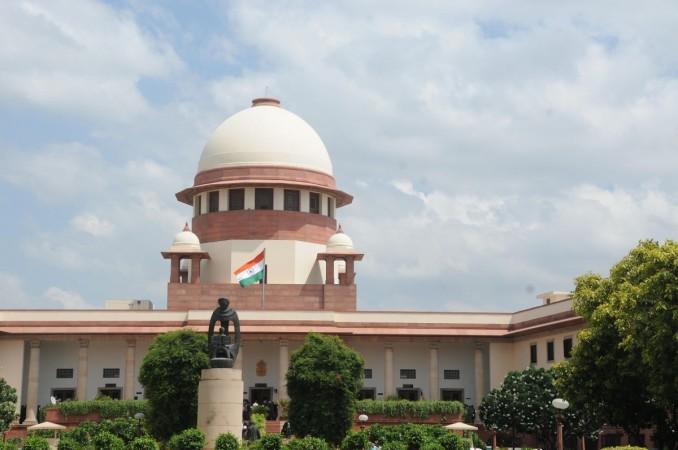Within just a span of a day when the Supreme Court clarified that people do not need to stand up when the national anthem is played in and as a part of the storyline of a film, newsreel or documentary, the apex court has already received a plea for 'equal status' of Vande Mataram.
According to the petition filed by Supreme Court lawyer Sanjeev Bhatnagar, the Constituent Assembly of India was empowered by Jawaharlal Nehru on August 25, 1948 by making a statement to alter the words or choose entirely a new song but unfortunately it could not be done. On January 24, 1950 Jana Gana Mana and Vande Mataram, both songs were adopted with equal status.
The plea was one among the many interventions filed by the people who were against the order which said that it mandatory for all cinema theatres across the country to play the national anthem before the film screening and that it was compulsory for the public to show respect by standing up.

The SC has agreed to hear out the plea on April 18. However judicial authority Dipak Misra has told Bhatnagar that taking an in-depth reference from the history would not be allowed and he should restrict himself only to legal debate on the issue.
"We cannot get into all that. Yes, you have made some good research. But there is a lot of difference between intellectual curiosity and legal debate. You have to draw a distinction between the two. Remember, we have only one national anthem and do not propagate theories here," SC told Bhatnagar in an India Today report.
According to Bhatnagar, Vande mataram should also get 'equal status' because "clearly the role of Vande Mataram has been referred by the Constituent Assembly as it has played a historic part in the struggle in the Indian Freedom."
"The author Tagore conceded in his own letters written in 1937 that he gave his composition "Bharat Bhagya Vidhata" to then Congress officials in 1911 and his composition was dedicated to the almighty (Brahmo Samaj). If the song was for almighty (Brahmo Samaj), then how it can be regarded patriotic is not understandable. In fact it appears that we are following it blindly and have completely misjudged the contents and spirit of the Bengali song Bharat Bhagya Vidhata," emphasised Bhatnagar.





![Raha turns 2: Alia Bhatt -Ranbir Kapoor host jungle themed birthday party for daughter, Kareena Kapoor, Rani Mukerji, Pooja Bhatt, Karan Johar attend [Pics]](https://data1.ibtimes.co.in/en/full/805705/raha-turns-2-alia-bhatt-ranbir-kapoor-host-jungle-themed-birthday-party-daughter-kareena.jpg?w=220&h=138)



